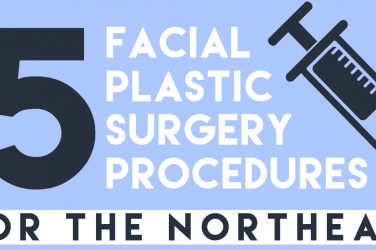Most people know the basics of what menopause is —the time of life when a woman no longer has her period and, thus, can no longer reproduce. While not having a period alone might sound great to many, it also comes with some hormonal and physical changes that might not be as great. However, when it comes to the term “perimenopause”, most people either use it interchangeably with menopause, or they don’t really know what it means at all. So, to clear this up, here are a few major differences between these two terms.
When are you in menopause?
To start with the more familiar term, you can say that you are in menopause when you’ve been a whole year without your period. If, however, you notice that you’ve been without any menstrual bleeding for 10-11 months, but then you do get your period, you are still not in menopause — you are in perimenopause. Typically, women enter menopause between 40 and 58, but it mainly depends on genetics — you will probably enter menopause around the same time as your mother and other female relatives.
When are you in perimenopause?
Perimenopause usually starts 8 to 10 years before menopause. So, for some women, it can start in as early as their 30s. This is when periods become irregular — the cycles can be shorter or longer than usual, and you can go without your period for months. However, as mentioned, until you go for a full year without one, you are still in this stage. In the last year or two of this stage, women may start feeling the symptoms. That being said, until they enter menopause, and their periods end entirely, they can still get pregnant during this stage.
What are the symptoms of perimenopause and menopause?
There are a variety of symptoms women in perimenopause and menopause may experience. For example, hot flashes are pretty common, as are night sweats, which is also why some women have trouble sleeping during this stage. Mood changes, including depression, can also happen. Next, their libido tends to drop, as many women start feeling vaginal discomfort, like dryness and irritation.
Female incontinence is also possible, due to the irritation and the weakening of the pelvic muscles. Dry skin, eyes, or mouth are also potential symptoms, as are headaches, muscle pain, and a racing heart. Finally, due to the hormonal imbalance, some women may also gain weight.
These are some of the most common ones, but there are other possible symptoms too, like having an odd taste in the mouth or having trouble concentrating and remembering, as some women reported.
Also, most of the symptoms start near the end of this stage, and continue into menopause — but, of course, some women may get the symptoms earlier. Moreover, not all women get all the symptoms. Additionally, if you do get some more serious symptoms, like headaches and urinary changes, it’s advisable to consult a doctor just to ensure that they aren’t caused by any other medical issue.
How can you treat menopause naturally?
There are more than a few ways to treat all the mentioned symptoms. For example, some women opt for the hormone-replacement therapy that makes up for the estrogen their body no longer produces. However, there are many natural ways to treat the symptoms and make this stage of life more comfortable.
Lifestyle changes, including dietary changes, are always a good idea, as practices such as yoga and meditation can do wonders for your overall health. Moreover, dietary changes can boost your health and mood too. For instance, you can find the best natural menopause supplements for your body, and add them to your diet. This way, you’d decrease the severity of your symptoms, and you’d have an easier time adjusting to this change in life.
Premature and induced menopause — what to know
It’s important to know that a small number of women enter menopause much earlier than most do. In short, when it happens before the age of 40, it is called premature menopause. However, it only happens to about 1% of women in the US, so it’s not something you should stress about for no reason.
In some cases, menopause can also be induced. This mainly happens in surgeries, when a woman has her ovaries removed either to prevent cancer or due to some medical complications. Women who do go through menopause earlier, whether it’s natural or induced, usually have more intense symptoms. They are also more prone to certain diseases, which is why they often need to be monitored for medical issues more closely.
To sum up, perimenopause and menopause are natural stages in every woman’s life. They can be uncomfortable, as the body goes through many changes during these periods, but they can also be made more bearable with some lifestyle changes. So, if you are nearing this stage, or if you know somebody who is, there is nothing to be worried about if you know what to expect and what you can do about it.







